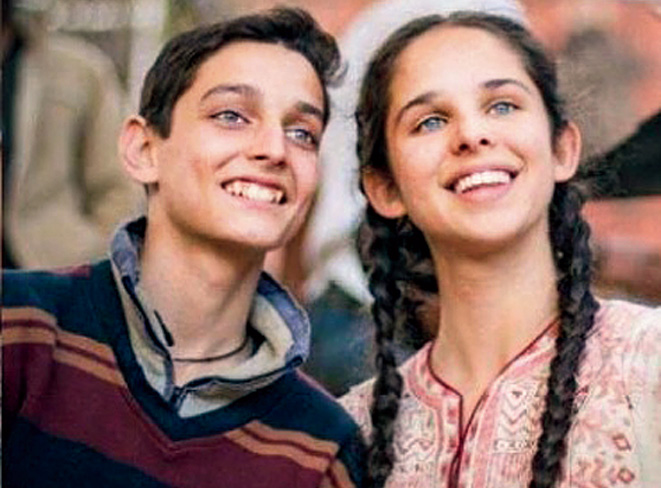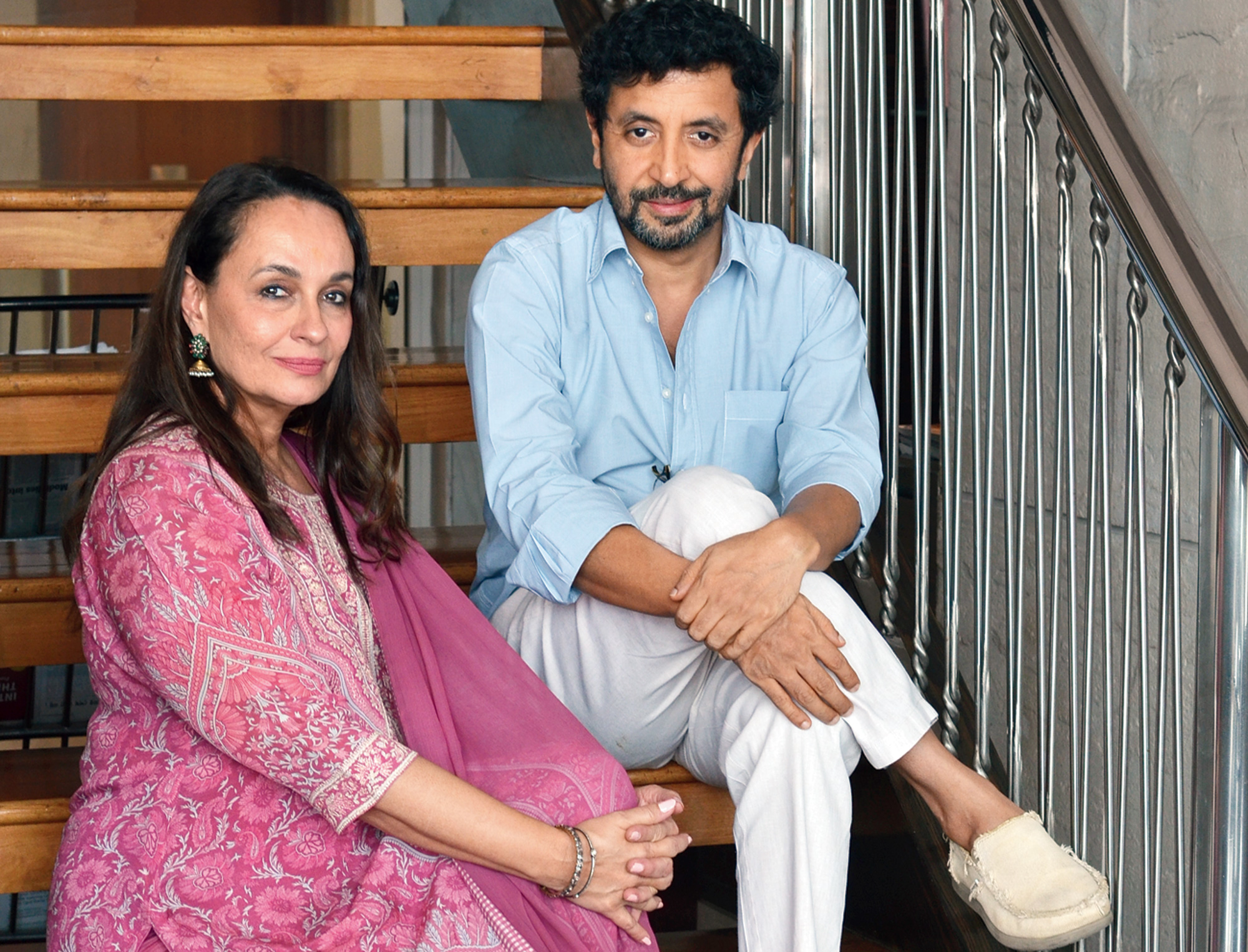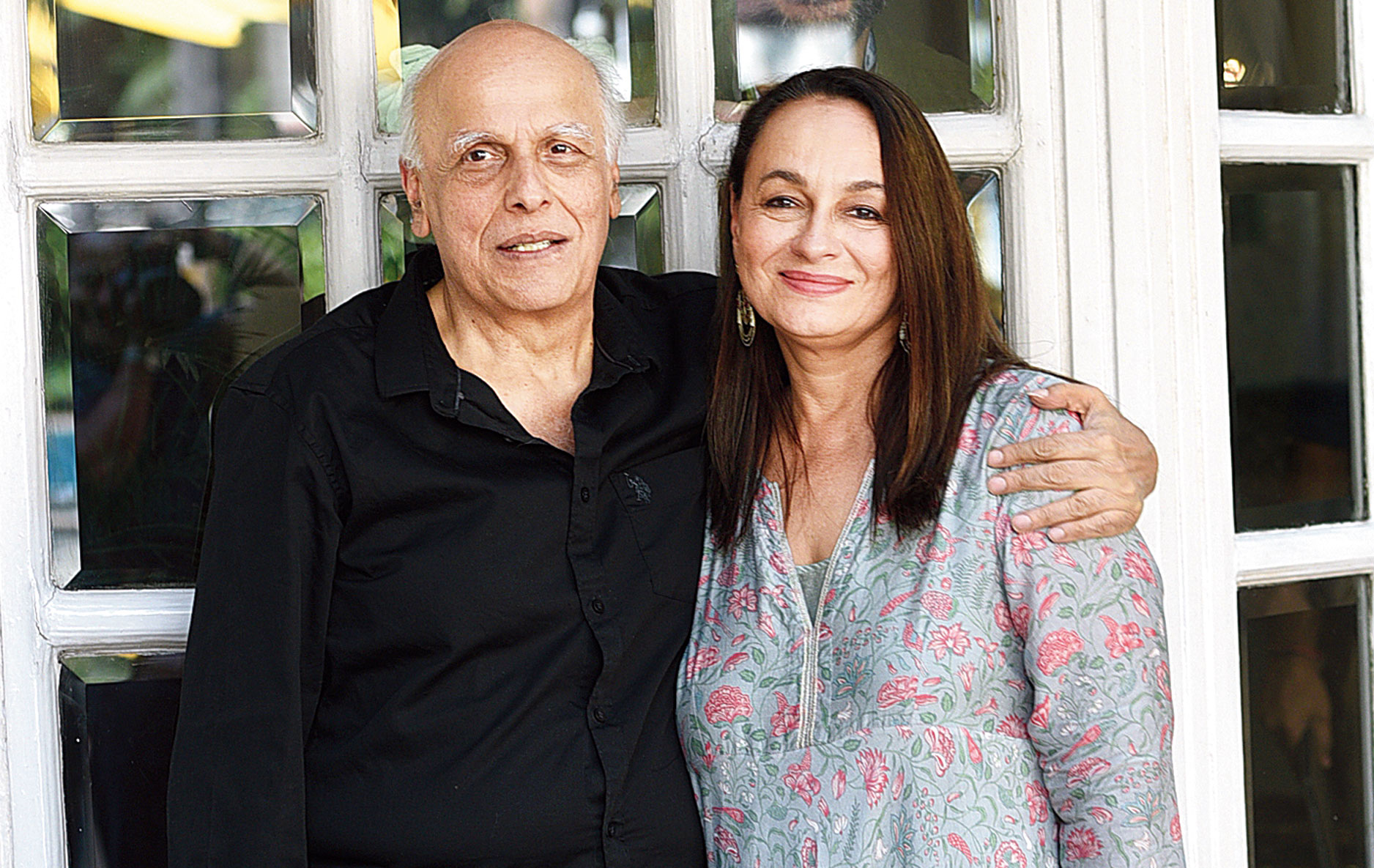Ashvin Kumar, whose short film Little Terrorist (2004) was nominated for an Oscar, has just directed No Fathers in Kashmir, that released on April 5. The film is about a teenage British Kashmiri, Noor (Zara Webb), who retraces her roots in search of her missing father while a local Kashmiri boy Majid (Shivam Raina) helps her. Shot in picturesque and remote parts of Kashmir, Soni Razdan plays Noor’s grandmother Halima in the film. On a pre-release tour of the film, t2 caught up with Ashvin and Soni for a chat recently at Hyatt Regency Kolkata, before they dropped in to promote the critically-acclaimed film at Refinery 091 in Sector V.
Ashvin, what was the genesis of No Fathers in Kashmir?
Ashvin Kumar: I had made two very ‘angry’ documentaries before this — Inshallah, Kashmir (2012) and Inshallah, Football (2010), which essentially talked about the previous generation and tried to come to grips with the truths that I had seen in Kashmir. I am quarter Kashmiri and we used to go to Kashmir a lot while growing up. Twenty years later when I went back to visit the valley, I saw nothing but death, destruction… but what was remarkable was how little I knew about what was going on there and how many atrocities were taking place that weren’t highlighted in mainstream media.
I thought the issues that moves me emotionally... how do I make the audience pan-India get into the soul of Kashmir the way I perceive it… the genesis came from that. The choice of a 16-year-old interlocutor who has not had any exposure to Kashmir but has Kashmiri roots, the choice of creating her foreign where she comes from overseas, were very strategic, purposeful choices. It allowed me to explore the theme without the eyes of prejudice, history, the baggage of the constant polarising rhetoric that we listen to in our mainstream discourse today… this kid just comes from nowhere.
Soni, what appealed to you about the script?
Soni Razdan: Ashvin was kind enough to share the script with me before he even perhaps thought about offering me the role. He insisted that I was too young to play a grandmother and I tried to tell him that is not the case! (Laughs) What appealed to me was that here is a person who knows Kashmir very intimately and who has an understanding of it. There was also a great love for it that came through somehow from the story that he had written.
I have always felt that any story that comes out of Kashmir has some element that is lacking — people try to sensationalise something or use it as a backdrop. They don’t actually get to the heart of the problem. The reality that we had in the ’90s is not the same today but at the same time, what had happened in the ’90s, the fallout of that is happening today. I felt that this was a very important film that really needed to be made.
You portrayed a Kashmiri woman in Raazi but the political scenario was different in the ’70s. How difficult was it to show today’s Kashmir?
Soni: Raazi wasn’t so loaded, this was hugely loaded! Every character has got 20 different things going on, nothing is black and white, everything is layered. The complexity of the film is incredible.
Tell us about your role.
Soni: It’s a woman who has lost her son, he is one of the disappeared people. When a man disappears and doesn’t come back for so many years, it’s sort of logical to assume that something has happened to him. You don’t even get that closure and you live with this day in and day out and at some point you lose hope, but you still hope.
How did you prepare for this role?
Soni: I shot this before Raazi, I wasn’t even offered Raazi when I shot this. Luckily for me, Ashvin has made some wonderful documentaries on Kashmir like Inshallah, Kashmir and Inshallah, Football. I watched those documentaries and there’s a lot about half-widows and women who have lost their sons. I saw that and discussed a lot with the director. I also had to speak a little bit of Kashmiri, so I prepared for that.

Shivam Raina, who plays Majid, and Zara Webb as Noor in No Fathers in Kashmir. A still from No Fathers in Kashmir
How difficult was it to shoot in Kashmir?
Ashvin: The first issue I faced was... what story to tell. There are so many issues that came out of the two documentaries. The movie is about love, about teenagers coming of age, it’s about youth, it’s a millennial film. It’s probably the first time someone has taken a look at Kashmir through the eyes of millennials. To put all that stuff into a dramatic feature film and make it endearing to a millennial audience and still make points about the human rights issues and religious issues… that was the first challenge.
Second, there was no funding available, so I raised money on Kickstarter, then I got some investors together. We started shooting in 2016 and on November 8, we had notebandi and we were stuck in the middle of nowhere. The location we shot at, Bhaderwah, was nine hours away from everything else and the reason for choosing that location was to shoot in some peace and not have any interference. Then we had a horrendous condition to stay because there were no facilities there… it’s very difficult to move around in Kashmir, forget about a 100-member crew! In November, we had only five hours of sunshine and I had to drop many scenes… when I came back to Goa to do my editing, I wasn’t satisfied. So we went back next year and re-shot some very important bits and pieces.
Any interesting anecdote from the shoot?
Soni: The day I left for the shoot from Mumbai was November 8 and I’ll never forget it because it was the day of demonetisation. I was going away for 15 days and the night before that my husband (Mahesh Bhatt) asks me to come watch television. I was packing and I had to call the bank manager and no one had a clue — luckily I had some cash in the house and I took some with me. I left the next morning, reached the location and the production people didn’t have cash to buy stuff! There was no hotel in the back of beyond place that we were shooting in, they had to set up the whole place in the middle of nowhere — they had to get cooks and blankets.
How was it working with the teenagers who play the protagonists Noor and Majid?
Ashvin: I conducted auditions for over one year in London, Mumbai, Delhi, Manchester, Sheffield, Edinburg, Jammu and Srinagar. We auditioned almost 1,000 kids. I was very clear that the chemistry and the relationship between these two kids will make or break the movie.
When I direct, I don’t tell actors what to do, that’s not my job, that’s their job to figure out. With the kids, I tell them where they come from and where they go because we are shooting out of sequence, so I remind them about the scene. I ask a lot of questions but they have to answer it themselves, like what is your intention in this scene? I just let them know what they want from the script and the rest was them.
Soni: They are so good! You come from your own space as an actor and you’re used to doing things a certain way and then you have this freshness with you, it’s a great energiser for all of us. They are not jaded, they don’t have any baggage, they are so pure.
You fought a long battle with the censor board to release the film…
Ashvin: It’s a purposeless battle. The censor board should be banned, frankly speaking. There’s no business for a censor board in this country, films should come under the cultural ministry and not under the ministry of information and broadcasting. Second, it should be an industry body that should certify each other’s films, they’re the most qualified to know what is suitable for adults and what is not, similarly as they do for television. Third, is censorship even valid today in the days of YouTube? That’s a deep and fundamental issue that needs to be confronted.
The direct effect of censorship is something that happened in the aftermath of Pulwama because there was a lot of hate, venom, fear, suspicion, hostility created in the minds of ordinary Indians across the country towards their fellow citizens in Kashmir. We have a situation in our country where we want this land but we don’t want to adopt its people. What we want is that land, the fast-flowing rivers, the border that is going to be a buffer between us and China and Pakistan. But we don’t want to engage with the people.
Soni, what did Mahesh and your daughter have to say about the film?
Soni: Mahesh had seen it earlier. Alia (Bhatt) and my friends watched it last night. Alia said it was heartbreaking…
Will we see Alia and you share screen space again after Raazi?
Soni: Well, it’s not in our hands, it’s in other people’s hands (laughs).
Soni, your choice of recent roles have been unconventional, like Sanjoy Nag’s Yours Truly, No Fathers in Kashmir and Raazi. Is that a conscious choice?
Soni: Not at all. It’s the work that comes my way and whether they are of any substance. Other things also come my way but they are not really the kind of stuff I want to do. The stuff that comes to me that has some substance in it are a little... hatke.
What’s next?
Soni: Yours Truly will release finally and then I’ve done a web series for ALTBalaji called The Verdict — State Vs Nanavati. I’ve also done a TV show for a UK channel that’ll release in August and if everything works out, I’ll be doing a play in London in September.
Ashvin: I’m going to stick to acting for a while (he also played an important role in No Fathers in Kashmir). It’s been five years and the movie has changed me personally in many ways, I need to take a step back and see what the impact has been. I’m also developing a script with a young filmmaker and I’ll play the lead in that… it’ll maybe go on the floors end of the year.











